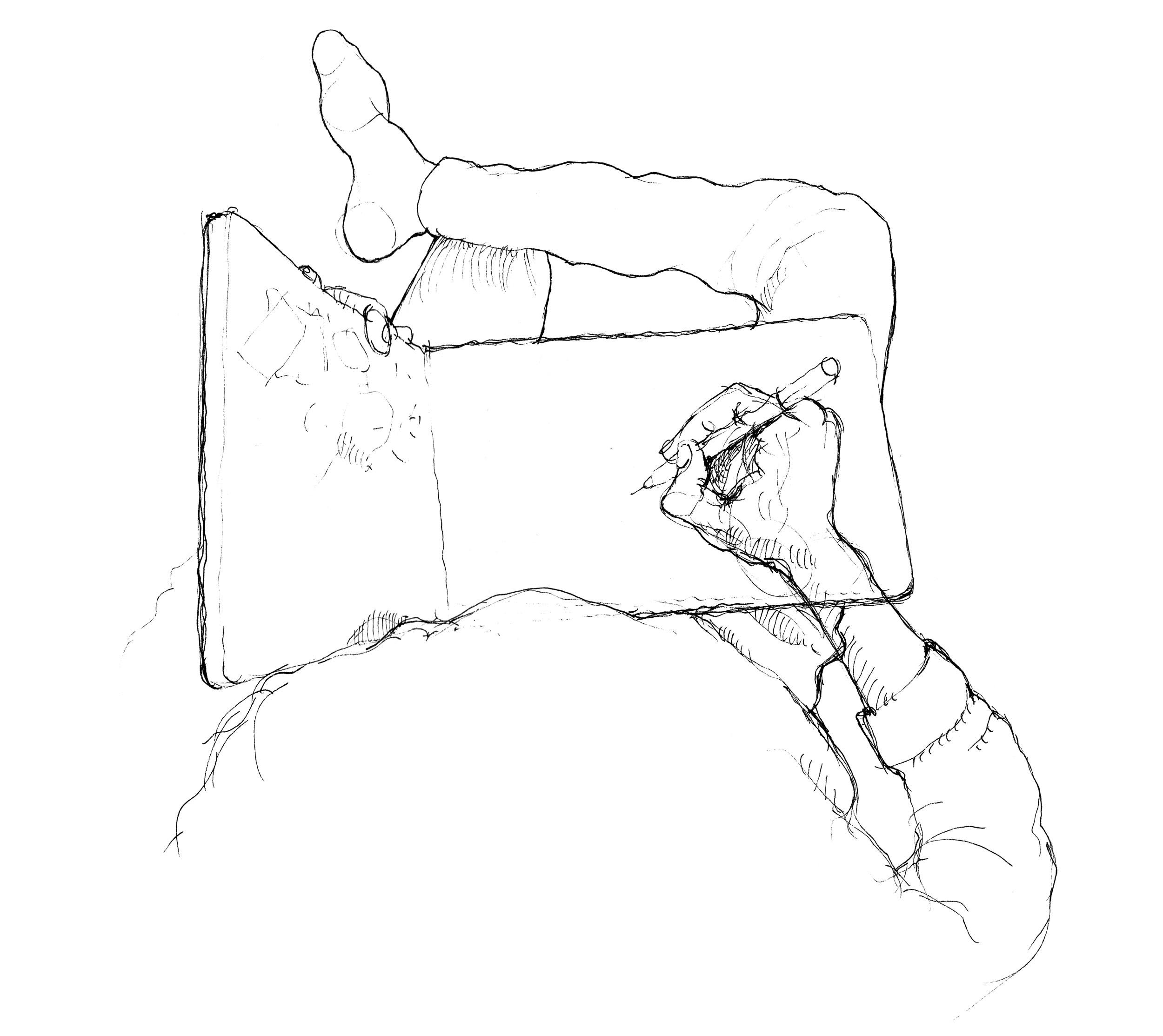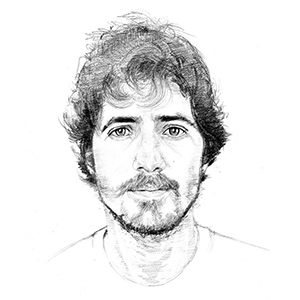
600 days of practice
Six hundred days ago, I began a quest to practice sketching, writing, and meditation—activities I enjoy doing that I want to cultivate. Even if only for a few minutes per day, I would engage in deliberate practice. Let me share some keys that might help you develop a practice to improve your skills.
Malcolm Gladwell repeatedly mentions the 10,000-hour rule in Outliers, a time that signifies how much practice you need to become proficient at a given skill. Of course, Gladwell didn't mean the time you practice is independent of talent or how you practice.1
As Cal Newport explains in Deep Work, two core components help identify deliberate practice: "(1) your attention is focused tightly on a specific skill you're trying to improve or an idea you're trying to master; (2) you receive feedback so you can correct your approach to keep your attention exactly where it's most productive."2 If you're not familiar with the term, Anders Ericsson coined it in the 1990s.2
The type of work experts do is as important as the time spent; you need to work through the right challenges to sharpen your skills.
In 2019, I interviewed Scott H. Young, author of Ultralearning, who shed some light on the issue. "There's a huge amount of research that shows that transferring skills from one domain to another is a lot more difficult than people think. Directness is, essentially, that when you are learning to do something, you want to tie your learning activities to the context in which you want to apply this skill later. If you are learning a language and you want to have conversations, you need to have conversations; if you are learning public speaking because you want to stand on stage and give speeches, you [have to] stand on stage and give speeches."3
In sketching, I won't get much better at drawing portraits if I spend the bulk of my time drawing buildings and objects; these are two distinct tasks. I'll acquire individual skills while I practice sketching buildings that might transfer and be useful when drawing portraits—say, noticing where lights and shadows are—but others won't—perspective drawings have nothing to do with drawing eyes and lips and ears. In Young's words, "you have to think about what you're trying to accomplish and how you're going to use it."4 That is the gist of directness, practicing the exact skills you want to get better at.
After almost two years of deliberate practice—which doesn't mean I wasn't practicing before but that I'm diligently practicing every day now—, some of my improvement is visible. I'm more comfortable writing; I'm more confident and less nervous interviewing guests on my podcast; and I find it easier to capture shapes, lights, and shadows when sketching. Paradoxically, these skills come more naturally the more I practice.
It's helpful to define your weaknesses and gather feedback from others from my experience, as they will inform the skills you need to practice. What are you trying to accomplish, and how are you going to use [your skill]? Young's question highlights the importance of knowing why you're practicing in the first place.
For me, it's all about improving my craft and inspiring others. My current commitments include writing two hundred words, meditating for ten minutes, and sketching something from reality every day. I use a habit tracker to track my progress, which helps me not "break the chain." I want to make sure I'm showing up and not missing one day. Regarding content publication, I aim to release a podcast episode per month, a sketch and story per week, and a live stream per week.
"When it's time to write, there will be days that you don't feel like typing. But stepping up when it's annoying or painful or draining to do so, that's what makes the difference between a professional and an amateur."5 In Atomic Habits, James Clear denotes the difference between the pro and the amateur. "Professionals stick to the schedule; amateurs let life get in the way."5 Jocelyn K. Glei also defines that professionalism in Manage Your Day-To-Day: "A professional is someone who can keep working at a high level of effort and ethics, no matter what is going on—for good or ill—around him or inside him. A professional shows up every day."6
For better or worse, I decided to formalize—or professionalize—my dearest hobbies. Publishing my work online makes it real, and I tend to take it more seriously this way. Even when I don't feel like practicing, I know that building the habit is more important than what I might write, sketch, or record on a given day. Days come from time to time, in which I can spend more time and focus. When I can't find the time to concentrate fully, for instance, I might meditate while I shower or walk, while other days I can sit for more than twenty minutes completely idle, without distractions. I might sketch something in two or three minutes or write to comply with my 200-word minimum during busy days but then spend hours drawing or writing when I can make time for it. Yet this only happens when you show up every day.
If you've read this far, you might be asking how you can incorporate these principles into your practice.
As I learned from my coach, it's best to define where you'd like to be one, two, or five years from now, and list the skills you need to develop to get there. That goal will determine the type of work and challenges you need to practice.
Show up every day, nurture your continued practice, focus on the tiny daily improvements, and enjoy. Ten thousand hours of training might take you far, but what matters are the hours you practice deliberately applying your skills as you want to use them in the future.
Gladwell, Malcolm. Outliers: The Story of Success. 1st ed., Kindle version, Back Bay Books, 2011. ↩
Newport, Cal. Deep Work: Rules for Focused Success in a Distracted World. 1st ed., Kindle version, Grand Central Publishing, 2016. ↩ ↩
Martínez–Alonso, Nono. "Getting Simple." Scott Young: Ultralearning, How to Master Hard Skills, Outsmart the Competition, and Accelerate Your Career, 6 August, 2019. ↩
Young, Scott, and James Clear. Ultralearning: Master Hard Skills, Outsmart the Competition, and Accelerate Your Career. Illustrated, Kindle version, Harper Business, 2019. ↩
Clear, James. Atomic Habits: An Easy & Proven Way to Build Good Habits & Break Bad Ones. Illustrated, Kindle version, Avery, 2018. ↩ ↩
99U, and Jocelyn Glei. Manage Your Day-to-Day: Build Your Routine, Find Your Focus, and Sharpen Your Creative Mind (99U). Kindle version, Amazon Publishing, 2013. ↩

